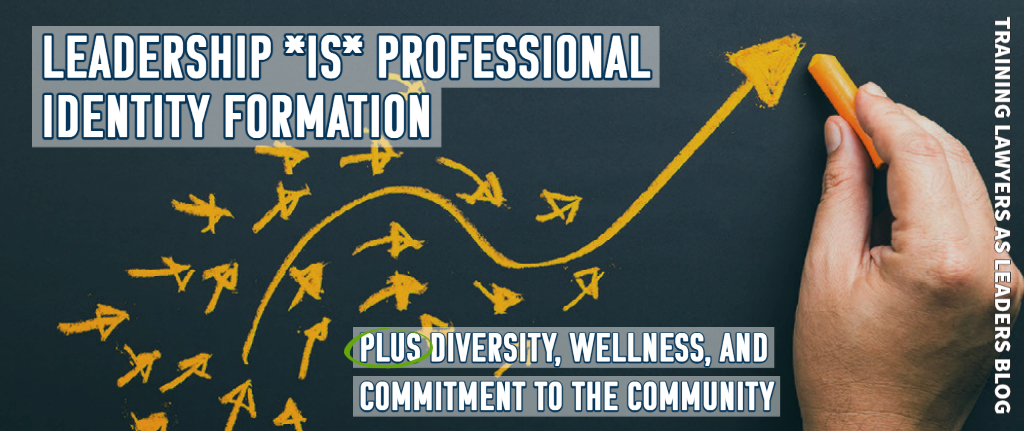
Friends,
As I reflect upon the 2023 AALS Annual Meeting, I am struck by the number of conversations about helping law students figure out who they are as lawyers and what they want to do with their careers. When I started attending the AALS Annual Meeting 10 years ago, there were not nearly as many conversations about these topics. The discussions focused primarily on substantive areas of law and ways that we could better teach students about the law. It has been refreshing to see that these conversations are now being bolstered with discussions regarding how law students can use the tools that they are learning in substantive classes and combine them with their passions and interests in order to make a difference for an individual or their community.
Although I was not able to attend as many sessions about Standard 303 as I would have liked (just too many good programs this year!), I did get to attend some that addressed professional identity formation, how it can be taught, and how to get buy-in from others at your school. Generally, the advice was to look for your champions and those who recognize the value of the new standard beyond what is simply required for compliance. Other advice included considering your resources and your capacity for new programming; identifying target audiences and data sources; assessing program, surveying participants, and summarizing results; getting feedback from other departments in the law school; and working collaboratively to develop programming. Some schools are also considering breaking it down into different focuses by year: Self-assessment for 1Ls, Self-direction for 2Ls, and Leadership for 3Ls.
As Leah and I were de-briefing these sections and the Leadership Section’s program, we started to discuss how Standard 303 and Leadership fit together. Although we have written about the overlap several times [see e.g., Using Leadership to Teach Professional Identity Formation Well Being and Diversity and Belonging, and Amendments to ABA Standards Support the Objectives of Leadership Development Programming] we believe that there is a unique space for leadership. While Standard 303 focuses primarily upon the professional development and self-actualization of the individual, we do not believe that is enough for our law students or for society. Our law students need to strive for more than that, and our society needs more than that from them.
It must be more than helping them form their identity as a lawyer – it must also help them understand the role of the lawyer in society, the benefits of diversity, how to be well in order to reach their capacity for doing good (i.e., self-actualization), and how they can serve their communities in addition to their families and clients. This is the essence of leadership, and we believe it is important that it does not get lost as schools figure out how to comply with Standard 303. Professional Identity Formation is important, but we cannot stop there.
As a sample of what law schools are doing in this Professional Identity Formation and Leadership space, Aric Short, from Texas A&M Law School, shared the four dimensions of professional identity that are covered in his award-winning required course at Texas A&M:
- Personal Identity: Personal values, life goals, strengths, passion.
- Values of the Legal Profession: honesty; integrity; continuous personal development; respect for the judicial system, the rule of law; and diversity, equity, and inclusion
- Competencies Expected by Employers: self-directed; grit, resilience; diligence; work well on teams/with others; well-being; leadership
- Right Fit in the Practice of Law: practice setting, practice area, skills utilized, opportunities for development, overall positives and negatives
What sessions did you attend? What did you learn from them? Where do you see the potential for teaching leadership as law schools work to incorporate the new standards?
As always, we would love to hear from you. Please feel free to reach out at any time.
– SLR




